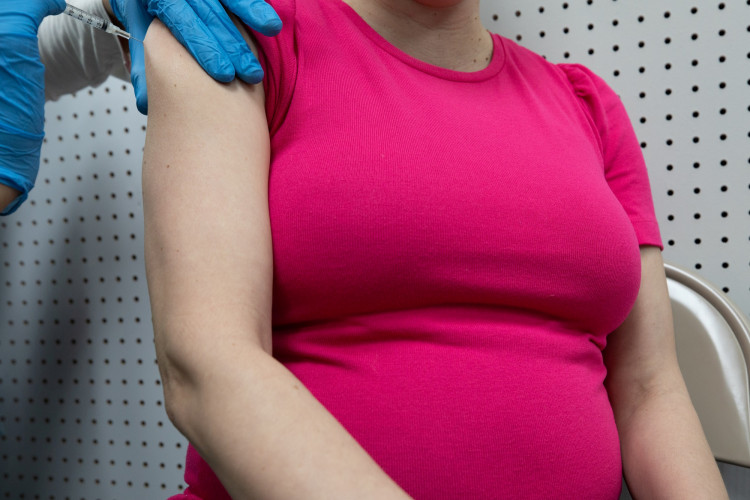South Korea will begin accepting COVID-19 vaccination reservations from pregnant women this week, as the government ramps up its inoculation campaign in order to fulfill its goal of immunizing 80 percent of all adults by October's end.
The Korea Disease Control and Prevention Agency (KDCA) has announced pregnant women can sign up for a shot starting Friday (Oct. 8), with inoculation scheduled to commence on Oct. 18 using Pfizer or Moderna vaccines .
"The vaccines are safe for pregnant women and can meaningfully decrease their risks of contracting COVID-19 and becoming critically ill," KDCA director Jeong Eun-kyeong told a public briefing on Monday.
Pregnant women are seen as crucial to the campaign, and health officials have sought to enlist their help through public advertisements and press briefings, claiming that if they are infected with COVID-19, they face a higher risk of serious disease and death.
Officials have encouraged those who are less than 12 weeks pregnant to seek medical advice before receiving the shot.
The KDCA says roughly 2% of the 731 pregnant women infected with the virus in South Korea as of August developed serious diseases, which is more than six times the rate of women aged 20 to 45.
As of Tuesday, 54.5% of the country's 52 million people, or around 63% of adults, had been fully vaccinated, with authorities hoping to reach an 80% vaccination rate by the end of October.
Authorities are also devising a plan for dealing with COVID-19 in a more normal manner, which will be deployed in stages beginning later this month to gradually remove distancing requirements and restrictions, while masks will remain mandatory for the time being.
The government aims to start vaccinating children aged 12 to 17 next month, while booster doses for those aged 75 and older, as well as other priority groups, such as those who live or work in nursing homes and care centers, will begin next week.
The KDCA recorded 2,028 cases on Tuesday, as the number of illnesses increased following the Chuseok (Korean Thanksgiving) holidays.
However, the current outbreak has seen significantly fewer serious infections than previous outbreaks, thanks to the vaccination of many older and more vulnerable people.
The number of critical cases remained at 350, and the overall number of infections reached 323,379, with 2,536 deaths.





